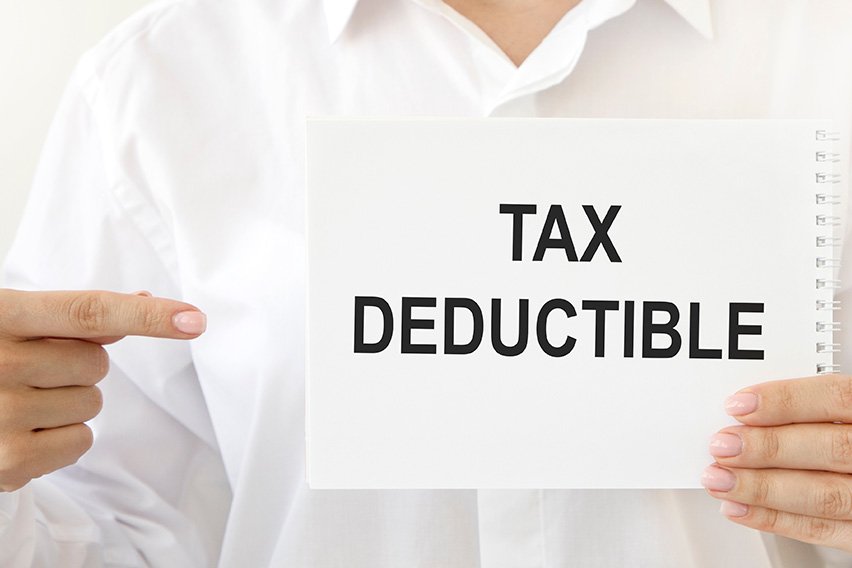How Much Do You Have to Make to File Taxes in 2024?

How much money do you have to make to file taxes? The amount that you have to make to file a U.S. federal income tax return depends on a variety of factors—including your age, filing status, your dependency on other taxpayers, and your gross income. For example, in the year 2021, the maximum earning before paying taxes for a single person under the age of 65 was $12,550. If you’re unsure how to file taxes and whether you need to, this article will guide you through the process and the considerations involved.
If your income is below the threshold limit specified by the IRS, you may not need to file taxes—though regardless of your income and whether you’re required to file taxes, it’s generally still a good idea to do so.
What this article covers:
- Do I Need To File Taxes?
- Filing Status, Age, and Dependents
- Determining Gross Income
- How Much Can a Small Business Make Before Paying Taxes?
- How Can I Reduce My Taxable Income?
Do I Need to File Taxes?
Not everyone is required to file or pay taxes. Depending on your age, filing status, and dependents, for the 2023 tax year, the gross income threshold for filing taxes is between $12,950 and $28,700. If you have self-employment income, you’re required to report your income and file taxes if you make $400 or more.
The main factors that determine whether you need to file taxes include:
- Filing status
- Age
- Dependents
- Gross Income
There are also a few other variables that impact your tax filing requirements, including whether you owe special taxes (like household employment taxes, recapture taxes, or the alternative minimum tax, or AMT); whether you (or your spouse, if you’re filing jointly) received distributions from a health savings account (HSA), Medicare Advantage MSA, or Archer Savings Account; or you, your spouse, or a dependent received advance payment from the health coverage tax credit or the premium tax credit.
So, you don’t need to file taxes if:
- You earned less than the gross income requirements for your filing status and age
- You made less than $400 in self-employment income
- You don’t owe any special taxes
- You (or your spouse, if filing jointly) did not receive distributions from an HSA, Medicare Advantage MSA, or Archer Savings Account
- You, your spouse, or a depending did not receive an advance payment for the health coverage tax credit or the premium tax credit
You do need to file taxes if:
- You earned more than the gross income requirements for your filing status and age
- You’re married, but you and your spouse are filing separate tax returns (and your gross income is $5 or higher)
- You made more than $400 in self-employment income
- You do owe one or more special taxes
- You (or your spouse, if filing jointly) received distributions from an HSA, Medicare Advantage MSA, or Archer Savings Account
- You, your spouse, or a dependent received an advance payment for the health coverage tax credit or the premium tax credit

Filing Status
Different filing statuses have minimum requirements for filing a federal income tax return. So, before you can determine whether you are required to file taxes, you first need to determine your filing status.
The IRS recognizes five different filing statuses:
- Single. This status applies to filers who are unmarried, divorced, or legally separated.
- Married Filing Jointly. Married couples have the option to file a single tax return for both parties. This status applies to filers who are married and filing a joint tax return with their spouse.
- Married Filing Separately. While married couples have the option to file a joint tax return, they aren’t required to. This status applies to married taxpayers who are filing a separate tax return.
- Head of Household. This status applies to taxpayers with children and/or qualifying dependents that covered at least half of the cost of keeping up the home during the tax year.
- Qualifying Widow(er) with Dependent Child. This status applies to filers whose spouse has passed away within the past two years and have a dependent child.
To determine your filing status, review each category and choose the status that reflects your current situation.
Age
There are different tax filing requirements based on age—more specifically, there are different standard deductions and filing requirements for filers under the age of 65 vs. filers over the age of 65.
(If you’re legally blind, you have the same requirements as people over the age of 65—regardless of your age.)
Dependents
There are also different filing requirements for taxpayers that are claimed as dependents—which include children under the age of 19 (or, if they’re a student, under the age of 24), people who are permanently disabled, or qualifying relatives.
Determine Your Gross Income
To determine whether you need to file taxes, you’ll first need to determine your gross income—the total amount of income you have before any tax deductions. If your income is equal to or higher than the taxable threshold for your filing status and age, you’ll need to file your taxes. But if it’s less? You’re not required to pay taxes.
General Income Requirements
The general filing requirements for 2023 are as follows:
| General Filing Requirements for 2023 | ||
| Filing Status | Age | Income Requirements |
| Single | Under 65 | $12,950 |
| Single | 65 or older | $14,700 |
| Married filing jointly | Under 65 (both spouses) | $25,900 |
| Married filing jointly | One spouse under 65, one spouse over 65 | $27,300 |
| Married filing jointly | 65 or older (both spouses) | $28,700 |
| Married filing separately | Any age | $5 |
| Head of household | Under 65 | $19,400 |
| Head of household | 65 or older | $21,150 |
| Qualifying widow(er) with dependent child | Under 65 | $25,900 |
| Qualifying widow(er) with dependent child | 65 or older | $27,300 |

If you make equal or more than the income threshold for your age and filing status, you will need to file taxes.
Keep in mind that these income requirements apply to earnings from W-2 jobs.
Self-Employed Income Requirements
If you generate more than $400 in self-employed income in a tax year, you’re required to report that income and file taxes—regardless of your filing status or age. But if your self-employed income is less than $400, you’re not required to file taxes.
The IRS considers any earnings outside of traditional W-2 wages self-employment income. This includes both formal employment arrangements (for example, a 1099 contract, a freelance consulting job, driving for Uber, or income from a small business) as well as more “casual” income (like cash payment for babysitting or dog-walking services).
Dependents Income Requirements
If a taxpayer is claimed as a dependent—but they also have income—they have different filing requirements. Just like the other categories, if you make equal to or more than the income requirements as a dependent, you’ll need to file; if you make less, you’re not required to file taxes.
| Dependent Income Filing Requirements for 2023 | ||
| Filing Status | Age | Income Requirements |
| Single | Under 65 | Unearned income: $1,250Earned Income: $13,850Gross income: $1,250 or earned income (up to $13,450) plus $400 |
| Single | 65 or older | Unearned income: $3,100Earned Income: $15,700Gross income: $3,100 or earned income (up to $13,450) plus $2,250 |
| Single | 65 or older and blind | Unearned income: $4,950Earned Income: $17,550Gross income: $4,950 or earned income (up to $13,450) plus $4,100 |
| Married | Under 65 | Unearned income: $1,250Earned Income: $13,850Gross income: $1,250 or earned income (up to $13,450) plus $400 |
| Married | 65 or older | Unearned income: $2,750Earned Income: $15,350Gross income: $2,750 or earned income (up to $13,450) plus $1,900 |
| Married | 65 or older and blind | Unearned income: $4,250Earned Income: $16,850Gross income: $4,250 or earned income (up to $13,450) plus $3,400 |
A dependent’s income is considered unearned when it comes from sources like dividends and interest.
Where Can I Find Filing Requirements Each Tax Year?
While these filing requirements are accurate for the 2023 tax year, they will likely change in the future. Before you file (or don’t file) your taxes, make sure to check the IRS website for the most updated numbers. These tables are published by the IRS in Publication 17 and Publication 501 and are updated each year.
How Much Can a Small Business Make Before Filing Taxes?
All corporations are required to file a tax return—even if the business doesn’t generate any income for the tax year. This includes LLCs that elect to be taxed as a C-Corp or S-Corp. If your business is a partnership, LLC, or sole proprietorship (which, if you’re a freelancer, is your default status), the self-employment threshold applies—and you must file a federal income return and pay self-employment tax on any income above $400.
The type of tax return you file will depend on your business structure:
- Sole proprietorship: Form 1040 and Schedule C
- Partnership: Form 1065
- C Corp or S Corp: Form 1120
- LLC: Dependent on tax election
Should I File Taxes, Even if I Don’t Have To?
If you’re not required to file taxes, you may still want to consider filing a tax return, especially if you’re facing decisions related to married filing jointly vs separately. Just because you don’t owe taxes, you may still be entitled to a tax refund. Additionally, you might be wondering, “what happens if I don’t file taxes?” There are certain situations where the IRS may owe you money, even if you’re not required to file a tax return (for example, if you’re self-employed and overpaid on quarterly taxes or you qualify for a tax credit)—and if you didn’t file, you would miss out on that tax refund.
If you’re not sure whether you should file taxes, talk to a tax professional; they can advise you on tax preparation—and whether filing taxes is the right choice for you (even if you’re technically not required to).

How Can I Reduce My Taxable Income?
If you’re looking to reduce your taxable income to the point where you’re not required to file taxes, there are a number of steps you can take.
One way to reduce taxable income is by topping up your retirement savings with traditional (not Roth) IRAs and 401(k)s, up to the maximum allowable contribution. Contributions to Health Savings Accounts (HSA) and Flexible Spending Accounts (FSA) are another way to shrink your taxable income. As a business owner, qualified expenses can also help you reduce your taxable income.
You could potentially earn thousands of dollars before paying taxes. However, even when your income falls below the cut-off level and you do not have to pay taxes, you need to file taxes to get a refund check.
More Useful Resources
- Requirements for Tax Exemption
- Are Closing Costs Tax Deductible?
- Are Funeral Expenses Tax Deductible?
- Mileage Tax Deduction Rules
- Sales Tax Deduction
- Are Home Improvements Tax Deductible?
- SALT Tax Deduction
- Mortgage Interest Deduction
- QBI Tax Deduction
- Educator Expense Tax Deduction
RELATED ARTICLES

 How Much Cash Can You Deposit?
How Much Cash Can You Deposit? Can I Sue My Tax Preparer For Not Filing My Taxes?
Can I Sue My Tax Preparer For Not Filing My Taxes? Can I Deduct Health Insurance Premiums? It Depends
Can I Deduct Health Insurance Premiums? It Depends 8 Tips for Filing Taxes
8 Tips for Filing Taxes What Is Tax Evasion? It’s a Crime
What Is Tax Evasion? It’s a Crime Are Product Samples Tax Deductible? Understanding Tax Deductions
Are Product Samples Tax Deductible? Understanding Tax Deductions